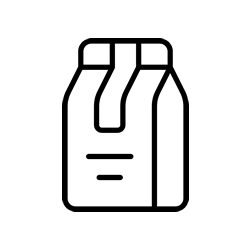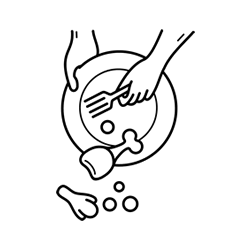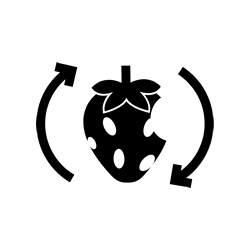
Stewards of the environment
Calvin Dining Services employs many strategies to reduce our environmental footprint. Our many programs help us track and lower various types of food waste on campus and divert materials to a variety of locations on and off-campus; this includes the campus food pantry and Food Recovery Network. We pride ourselves on the responsible use of supplies and protecting the natural environment through sustainable practices to enhance ecosystem resilience and human well-being on the Calvin campus.
What we're doing
-

Green 2 Go
-

Sleeves for Sustainability
-

Support Local Farms
-

Sustainable Sourcing
-

Food Waste Reduction
-

Food Recovery Network
-

Farmstead
-

Bit-Farms
Menus of change
Partnering with the Culinary Institute of America and Harvard’s Chan School of Public Health, we have been working to create a long-term, practical vision for the integration of optimal nutrition, public health, environmental stewardship, and social responsibility, within the foodservice sector and beyond.
What you can do
Bring your own silverware
Dining with your own silverware will reduce the amount of disposable silverware needed on campus and help reduce the amount of waste that ends up in the trash.
Calvin Dining reusable bag
Use a reusable bag to support our efforts to eliminate plastic waste. Reusable bags help reduce the use of single-use plastics on campus.
Eat less meat
Reducing your meat consumption will help reduce greenhouse gas emissions and the need for antibiotics used in raising animals.
Local and national sustainability certifications and programs
Calvin Dining is continually increasing its sustainable practices, and a big part of that is obtaining certifications and partnering with national programs that focus on sustainability.
AASHE
An acronym for the Association for the Advancement of Sustainability in Higher Education. AASHE empowers higher education faculty, administrators, staff, and students to be effective change agents and drivers of sustainability innovation. They work with and for higher education to ensure that our world’s future leaders are motivated and equipped to solve sustainability challenges. As a member, our joint mission is to inspire and catalyze higher education to lead the global sustainability transformation.
Campus Sustainability Week
National Campus Sustainability Week is an initiative focused on educating and advocating for sustainable dining and the environmental benefits of eating more plant-based foods. While acknowledging that industrially producing meat uses large amounts of resources like land, crops, water, and energy while producing a large amount of carbon dioxide-equivalent gases, our menus feature plant-based options while educating and advocating for sustainable dining.
STARS
The Sustainability Tracking, Assessment & Rating System™ (STARS) is a transparent, self-reporting framework for colleges and universities like Calvin to measure their sustainability performance. The intention is to engage and recognize the full spectrum of higher education institutions, from community colleges to research universities. This system encompasses long-term sustainability goals for already high-achieving institutions, as well as entry points of recognition for institutions that are taking first steps toward sustainability.
Supporting Local Businesses
We are committed to nourishing our community by supporting its people— their businesses, farms, non-profits, and events. As a foodservice provider, we are inspired by the people living and working together to create a sustainable community.
Swipe Out Hunger
Swipe Out Hunger is a national nonprofit committed to ending college student hunger—advising colleges and universities on the design of commonsense and innovative anti-hunger programs. This partnership allows us to implement “The Swipe Drive,” which enables students with extra meal swipes to donate them to their peers. More than meal swipes, our partnership with Swipe Out Hunger is designed to empower Calvin students to combat campus food insecurities and continue to drive the national conversation on student hunger.



